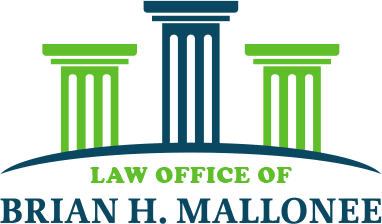March 29, 2024
Unit of Prosecution under the Patient Brokering Act
“South Florida still tops healthcare fraud in the United States”, correctly stated a Miami Herald article headline in September 2021. http://www.miamiherald.com/news/local/article254314853.html. Indeed, South Florida is a hot spot for fraud schemes which defraud Medicare and Medicaid, according to the Office of the Inspector General for the United States Department of Health and Human Services.
In State v. Desimone, 2024 Fla. App. LEXIS 1088 (Fla. 4th DCA 02/14/2024), the appellate court was presented with the question of whether payments paid to different entities for referrals of the same patients on the same days could be charged as different violations of the Patient Brokering Act, or whether such payments constitute only one violation for each day. The court concluded that such payments may be separately charged without violating double jeopardy because the correct “unit of prosecution” under Fla. Stat. § 817.505(1)(a) is each payment made to induce the referral of patients or patronage.
The court explained that the determination of the “unit of prosecution” directs its focus on “the aspect of criminal activity that the Legislature intended to punish.” See Desimone at *15 (citation omitted). As for Desimone, a health care provider, the criminal wrong to be corrected under Section 817.505(1)(a) was paying third parties to refer patients to the health care provider. Focusing on the payment of commissions, Desimone’s payments to two different third parties induced both to be brokers in the referral of the same patients on the same days. Desimone was charged with making specific payments by separate checks to the third parties in return for referrals. Therefore, even though the state prosecution conceded that the payments were for the same patients. Desimone paid each of the third party brokers to induce them to refer patients to Desimone for lab testing which is prohibited under Section 817.505(1)(a). The inducement occurs by each payment to the third party brokers. Because the focus is on the payor in Section 817.505(1)(a), not the payee, the mere fact that the payments were made for the referral of the same patients for the same lab testing is not of material importance.
“If a provider has to pay two parties to obtain patient referrals, the provider is twice entering into deals to broker the patients. Logically, any person, health care provider, or facility making several deals to induce the same referrals or patronage is engaging in more prohibited behavior pursuant to section 817.505(1)(a) than the person, health care provider, or facility which makes only one deal to induce referrals or patronage. For that reason, the ‘common sense’ unit of prosecution under section 817.505(1)(a) is each payment made to induce the referral of patients or patronage.”
See Desimone at *16-*17. Concluding that the unit of prosecution is each payment made to third party brokers to induce the referral of patients, the appellate court found that the state properly charged Desimone for the separate payments made to the third party brokers, as each separate payment was used to induce the referral of patients. Accordingly, the appellate court ruled that the trial court erred in granting the motion to dismiss four of the charges as multiplicitous, and its decision was reversed and remanded for reinstatement of the dismissed charges.
Attention to detail is critical in defending any criminal charge, and, as with any other criminal offense, prosecutors must prove each element of patient brokering beyond a reasonable doubt. There exist exceptions to Florida’s patient brokering law that may help a person avoid a criminal prosecution and conviction. For instance, it may be permissible to split fees for referrals within the same practice group.
Ultimately, whether a defendant can invoke a legal exception requires close analysis of the facts and circumstances surrounding the alleged patient referral and the alleged payment made to third party brokers.
LIKE THIS BLOG POST? SHARE IT WITH THE WORLD
